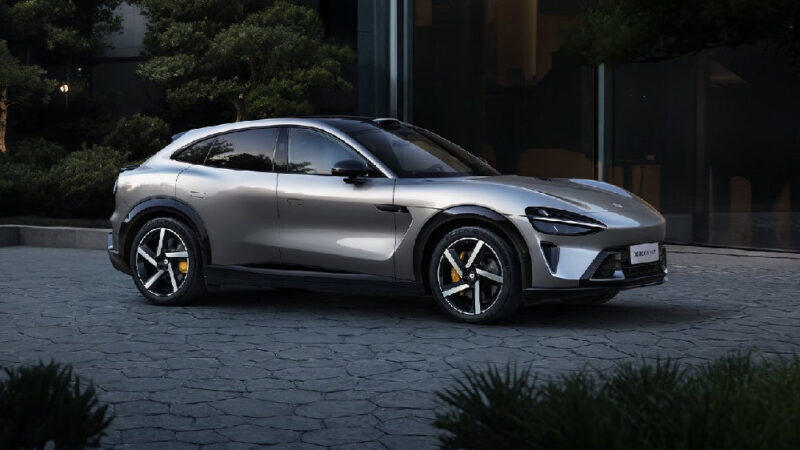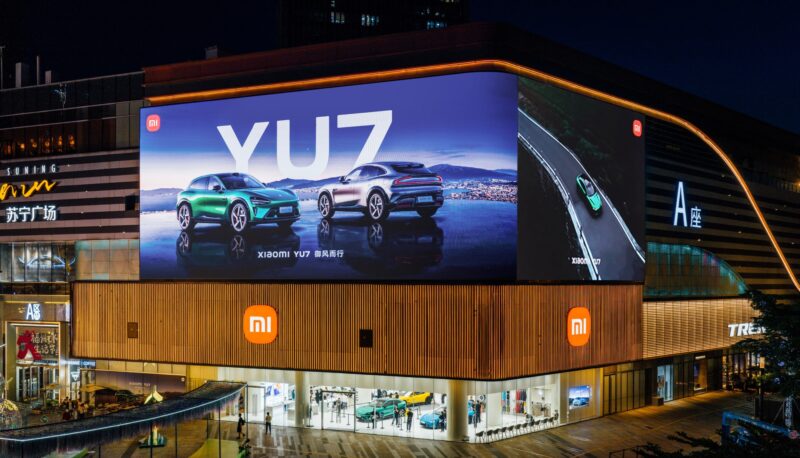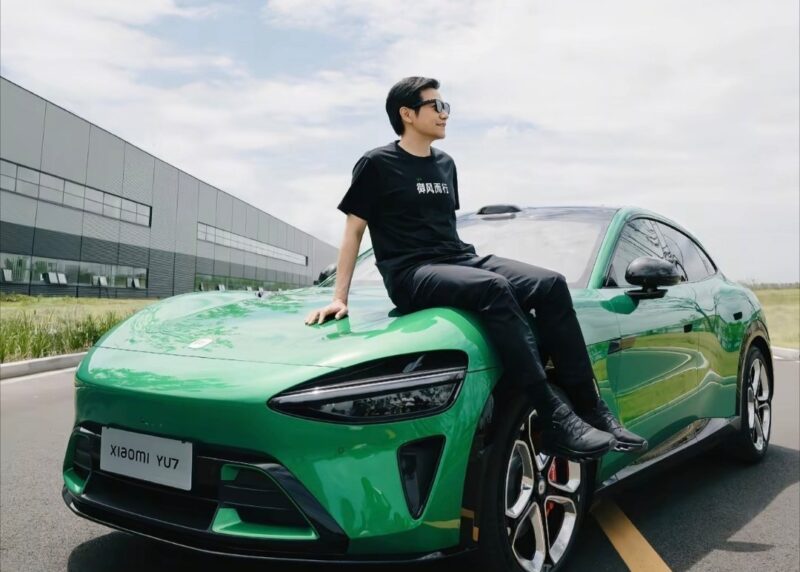Xiaomi CEO Lei Jun praises Tesla’s FSD: “We still have a lot to learn”
Xiaomi’s Lei Jun praised Tesla’s FSD capabilities on his Weibo, saying [Xiaomi] still have a lot to learn from the U.S. automaker.
On Saturday, Tesla VP Tao Lin posted about Model Y’s first autonomous delivery to the customer: “For the first time, the car delivered to the owner on its own. No driver, no remote control, reaching up to 115 km/h before arriving safely at the customer’s doorstep,” Lin wrote.
Lei Jun reposted, “Tesla is indeed amazing. It has led industry trends in many areas, especially FSD (Full Self-Driving). We still have a lot to learn.”
Tesla made headlines on Friday when a Model Y autonomously drove about 24 km from the US Gigafactory in Austin to a customer’s home without anyone inside. Tesla CEO Elon Musk called it the first fully autonomous delivery.
In China, such public praising is not uncommon as part of guerrilla marketing. Also, the term “frenemies” is often used when CEOs of competitors are “jokingly” talking about each other’s products or placing an order to buy them. Nio’s William Li did it a lot with Xpeng’s He Xiaopeng when testing a semi-solid state battery with a 1,000 km range on the ET7 sedan last year. He Xiaopeng told William to get a big cup of coffee for a long ride and offered him a discount for the Xpeng X9 MPV.
The first time those two encountered such a dynamic was in 2018, when Xiaopeng and Li placed a bet on whether Nio could deliver 10,000 vehicles annually that year. Li won the bet at that time.
Xiaomi’s Lei Jun took this to a completely different level. He regularly interacts with competing CEOs, praising their cars and technology and inviting them to Xiaomi’s car launches. Before praising Tesla’s FSD, he had complimented Nio’s battery swap technology. In his latest move, Lei Jun congratulated Great Wall Motor, one of the largest private Chinese automakers, on its 35th anniversary and Li Auto on its 10th anniversary.
Model Y was Tesla’s sales motor in China. In 2024, Tesla delivered 480,309 units of Model Y in China, contributing 74.6 % of its domestic sales. The mid-size SUV managed to sell quite well even under pressure from many Chinese EV makers, such as Xpeng G6, Deepal S7, Zeekr 7X, BYD and Onvo L60. In 2025 (Jan-May), the sales were down 24% from the same period last year.


Xiaomi launched its Model Y competitor, the YU7 SUV, on June 26 in Beijing. It received 289,000 orders in an hour and 240,000 lock-in orders (non-refundable deposits) within 18 hours of the launch.
Xiaomi’s advanced driver assistance system (ADAS) is called Xiaomi Assisted Driving Pro (sometimes referred to as HAD). It is powered by Nvidia Drive AGX Thor, which offers 700 TOPS (trillion operations per second). However, most reviewers who enthusiastically highlight Xiaomi vehicles are a bit more reserved about ADAS performance, which can be “quite conservative.”
However, unlike Tesla’s FSD, it comes standard with every model, a feature common among most Chinese EVs.



